Beyond the edge of the map
Where the road runs out and the land grows wild, silence stretches wide and we are left to listen. On finding warmth in the coldest places.
There were two things going through my mind as we rounded another featureless bend on the great open plain before us: I really hope there’s no terrorists here and I can’t wait to have a bath in that hot spring.
Two winters ago we found ourselves tracing the jagged borderlands of Eastern Türkiye, chasing steam on a map and warmth in a landscape that seemed perpetually frozen.
We’d driven several hours around the vast shores of Lake Van and beyond, stopping at a truck stop that saw so few female visitors the women’s toilets had been turned into a chicken shed and thus I was now bursting for a wee. One single thing had brought us to this area: a blurry Google Maps photo of something that looked maybe, hopefully, like a hot spring.
Such sulphur addicts we were by this point that driving 300km to check out a structure that had at best a 50% chance of containing hot water seemed a perfectly reasonable use of our limited remaining visa term. But the beautiful thing about planning your route around obscure way-markers such as these was that they took you to places you would’ve never otherwise had reason to visit, and those places, such as in this instance, could often exceed your wildest expectations.
We turned the corner onto the edge of the Çaldıran plain, and the very sight of it was enough to floor us entirely.
It’s a difficult thing to describe, when there is so much of nothing and not a lot of anything, but that very emptiness and desolation is what made this scene so striking. A steppe of dry, golden grass reaching out in a vast oval towards jagged blue mountains in every direction. It had the appearance of a large bowl, with not an inch variation in altitude until the edges of it crept up the mountainsides which shot up to 3,000m high peaks. Beyond these was Iran.
It was the kind of scene that struck me so deeply, I still manifest it in my mind to soothe myself on sleepless nights; my peaceful place.
The clear quality of the air only enhanced the vivid intensity of the landscape, like someone cranking up the contrast. The emptiness of our surroundings sucked all the air out of my chest as I marvelled with childlike awe at the pale sweeping grasses and chimney smoke-marked villages in the distance. I wondered how anyone could live here, in such a hostile environment, and longed to do so myself, to truly soak in the sense of Otherness.
It felt like coming home. Not in a physical sense; this dry, barren landscape couldn’t have been more disparate from the rolling green fields of England. Nor an emotional one; I was excited though tense and wary at our own vulnerability; with nowhere to hide on this great plain we were conspicuously exposed in our bright blue van, tiny as it were– a dot on the horizon. But something stirred in me that rarely does, and I would later come to realise that this place held some spiritual significance that I would continue trying to unravel for the next few years. How could I feel so connected to a place that I would spend just one brutally cold night in? Was there some intangible, astrological force that drew me here? Or was it simply the fathomless open space that struck its own chord deep within me, reconnecting my soul with the very freedom it craved?
Our wheels pulled off the tarmac and followed a dirt track out onto the yawning plain, hearts beating with excitement. We parked up next to the only landmarks; a small red building and a drab concrete enclosure, but instead of checking out the hot spring as we usually would we set about winter-proofing the van right away; tonight the temperature would drop to –15ºC. We stuffed towels and cardboard into the radiator grille, put up foil bubble insulation in the windscreen and windows, and settled into our coldest night in the van yet.
We awoke in the same isolation we’d slept in, with just distant twinkling village lights beneath snow-dusted mountaintops for company. We’d not been visited by terrorists in the night as I’d feared, and had slept remarkably well with just a hot water bottle stuffed between us for warmth.
A few things happen when you sleep in a van with poor insulation and no heating in subzero temperatures: your breath condensates on the pillows and walls making them damp and smell like bad breath; the layers of fleece and blankets on the bed trap heat well but don’t allow sweat to evaporate, making your body uncomfortably moist and sticky; condensation freezes on the windows so pillows and curtains have to be peeled off the icy glass. The doors and windows freeze shut outdoors; diesel gels; coolant turns to slush. Our 15L jerry can of water, last night’s dinner and even the bedside cup of water Ben poured an hour before dawn are frozen into solid blocks of ice.
Peeling back the blankets and getting up is a task that requires Herculean levels of resilience, but at least the air is refreshing against our damp bodies. Then it’s a frantic scramble to put the kettle on, have a flannel wash and get dressed, battling with the temptation to simply throw our clothes on. At least this morning we have a hot spring to look forward to, and by the time we’re cradling cups of tea and admiring the 360º view outdoors last night’s cold is all but forgotten.
Just as we’re walking over to bathe, a man appears with a group of women who all file in ahead of us. Non-segregated bathing is taboo In Türkiye and hence most hamams have lockable doors, so we had no choice but to wait for an hour. Instead we talked to (one of?) their husband(s), a kindly local man named Muhammed who told us that this was in fact a warm winter and that temperatures usually reached –40ºC in these parts, although less so in recent years with climate change. We were joined by an an eccentric and enterprising shepherd who gave us sweets and cigarettes in exchange for a few lira- this must be his side-hustle, or perhaps his main one, as we had no idea where he’d left his sheep.
Muhammed offered us to stay in his house with a wood fire that night, and we wondered why we’d been so worried about staying here at all. An inhospitable landscape by no means equates to inhospitable people.
Alas it was too cold to spend another night here, and we had already booked a hotel in Doğubayazıt, which meant regretfully we could not take him up on his offer.
After a bathe in the hot spring which I believe smelled strangely of parsley (Ben disagrees) and a squirt of liquid encouragement (aka EasyStart) into the van’s air intake to get it fired up, we set a course north east, weaving our way next to the Iranian border under the watchful hollow eyes of guarded towers, barbed wire checkpoints and armoured vehicles, all the while marvelling at the volcanic landscapes. We passed lava fields and sparse tin-roof villages that seemed too precariously placed to be lived in, yet herds of sheep and goats and the occasional line of washing belied their inhabitants. We wondered how anyone could eke out a living in such a harsh and volatile place.
Our hotel was nothing special but it was warm and cost £20 a night, and had a shower that was sometimes hot. We ate a weird breakfast of soggy chips, çorba (lentil soup) and sweet caj, and an equally strange dinner of cold grilled vegetables and hot rice with bread and sour yoghurt.
The hot carpeted hallways and dated rooms were a stark contrast to the crystal air and golden plains of this morning, but it gave us a place to digest the enormity of what we’d just seen, and most importantly we would not freeze to death that night.
Even so, tucked up in that too-warm hotel room, I found myself longing to feel the brutal cold of that distant plain once more, where silence rang louder than any city and kindness emerged from clouds of steam.
If this story resonated with you, or offered a glimpse into a quieter corner of the world, consider subscribing to receive more tales from the road. Each one is rooted in lived experience, shaped by slow travel, and carried by the belief that there’s beauty to be found in the margins.
If you know someone who might appreciate this kind of story, feel free to pass it along, too— word of mouth means the world to writers like me.
–Lucy 💙



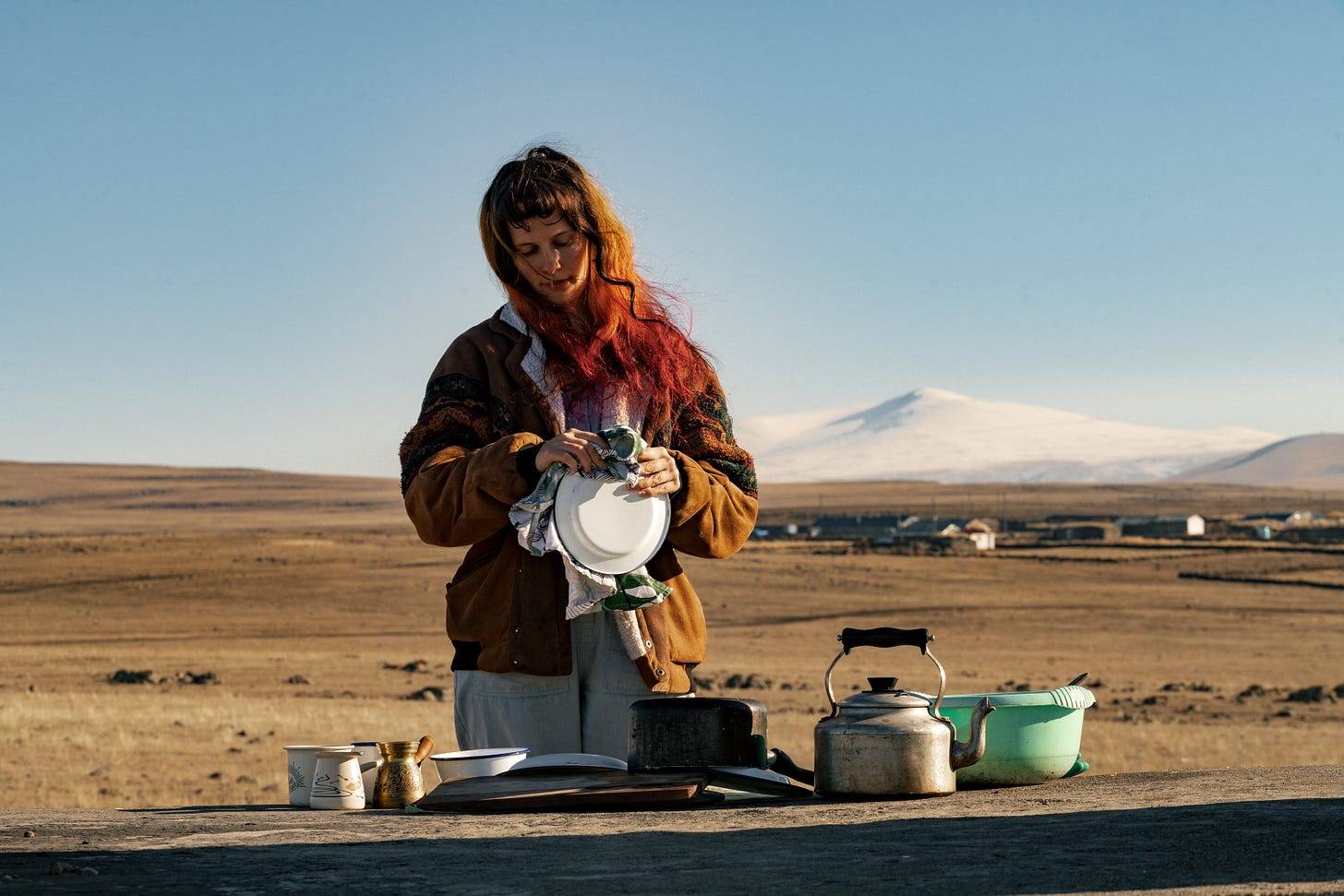
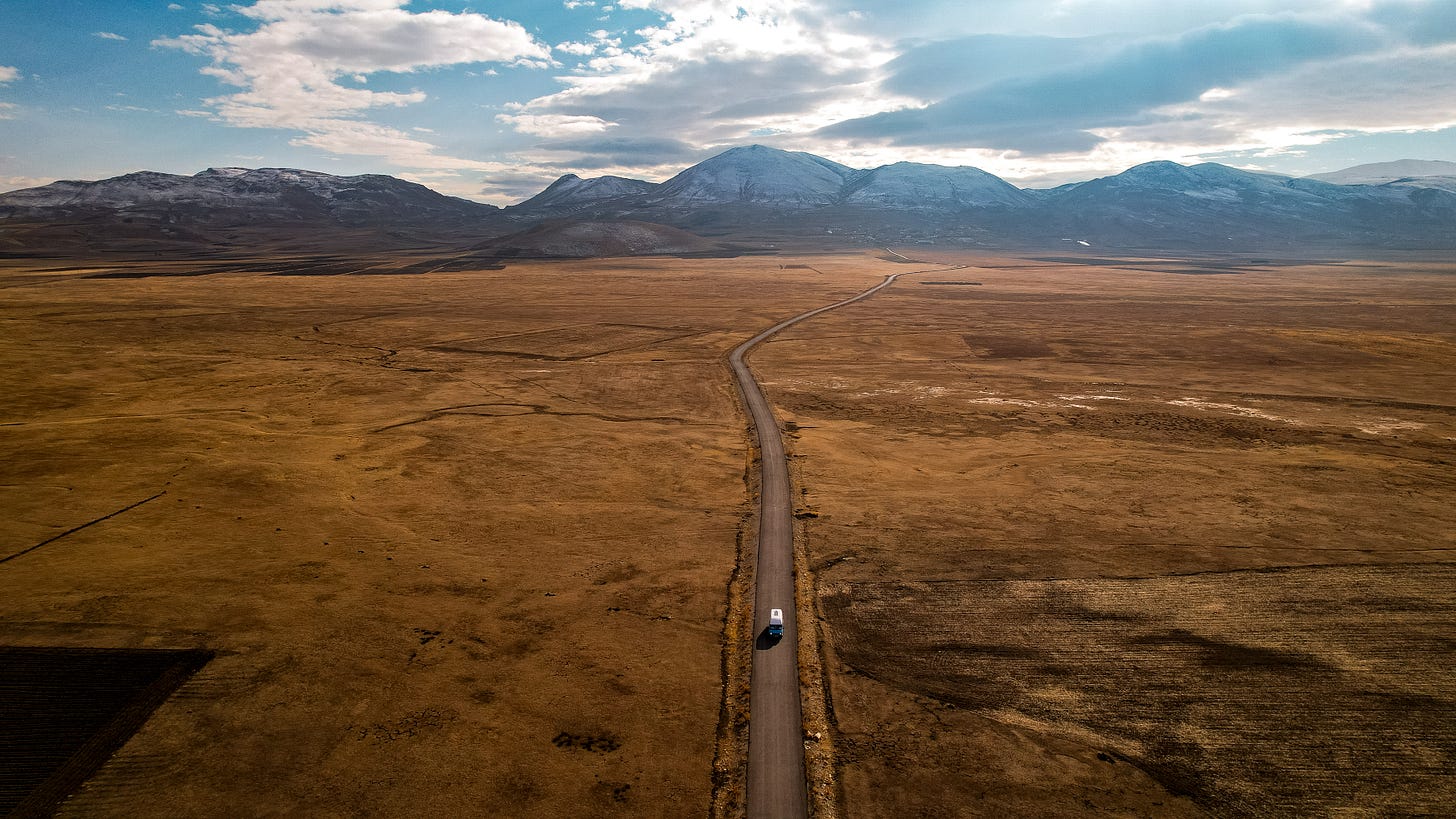
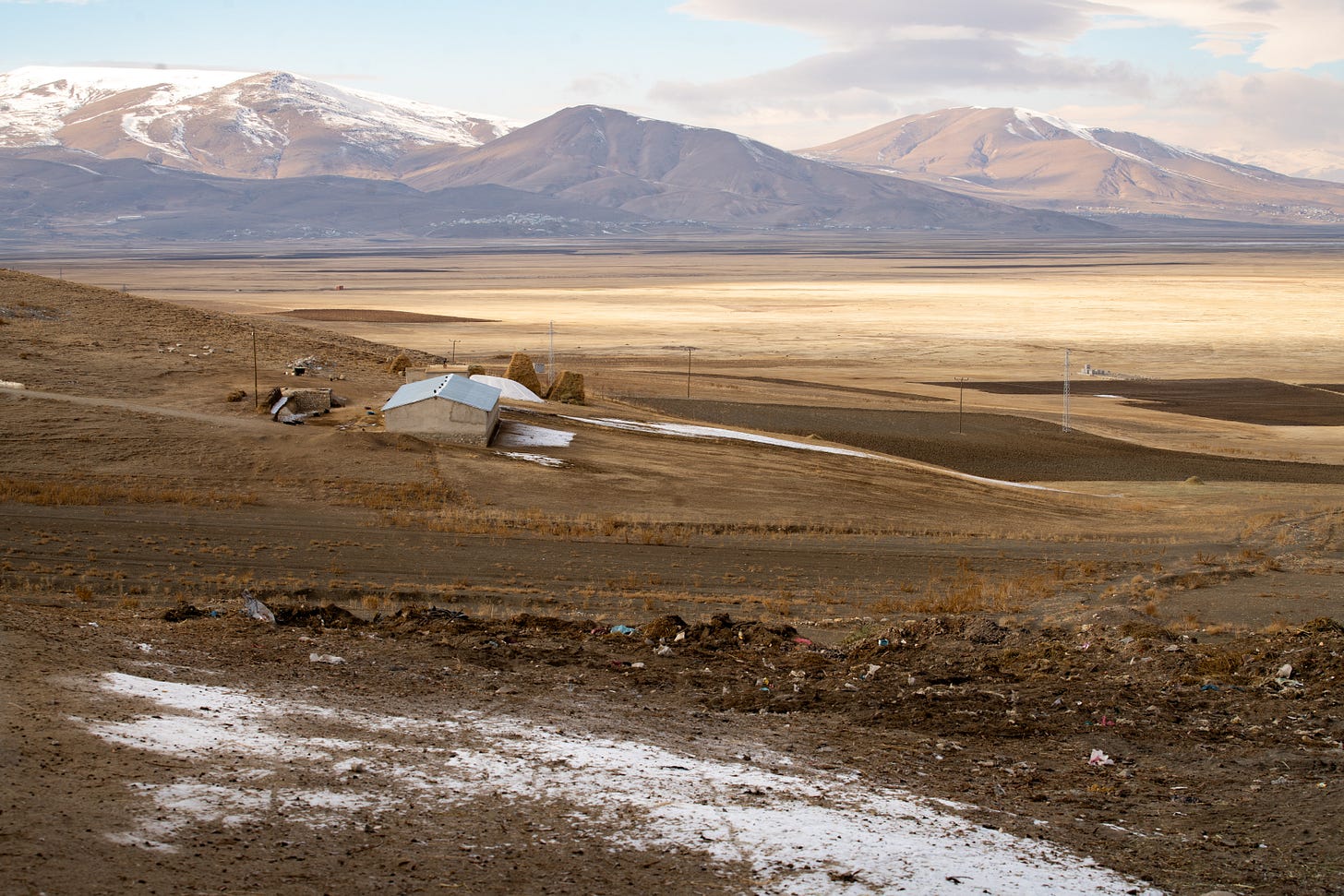
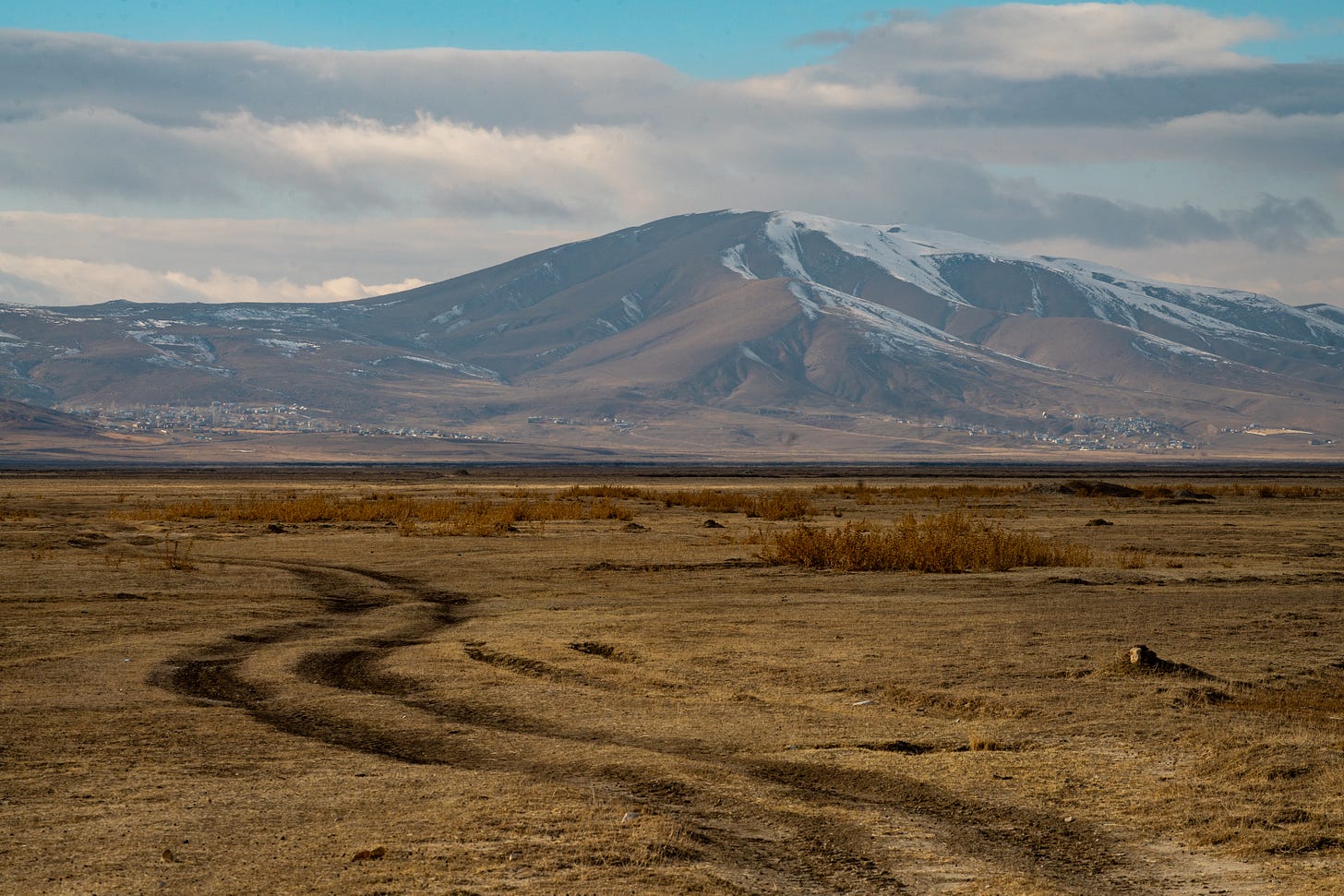
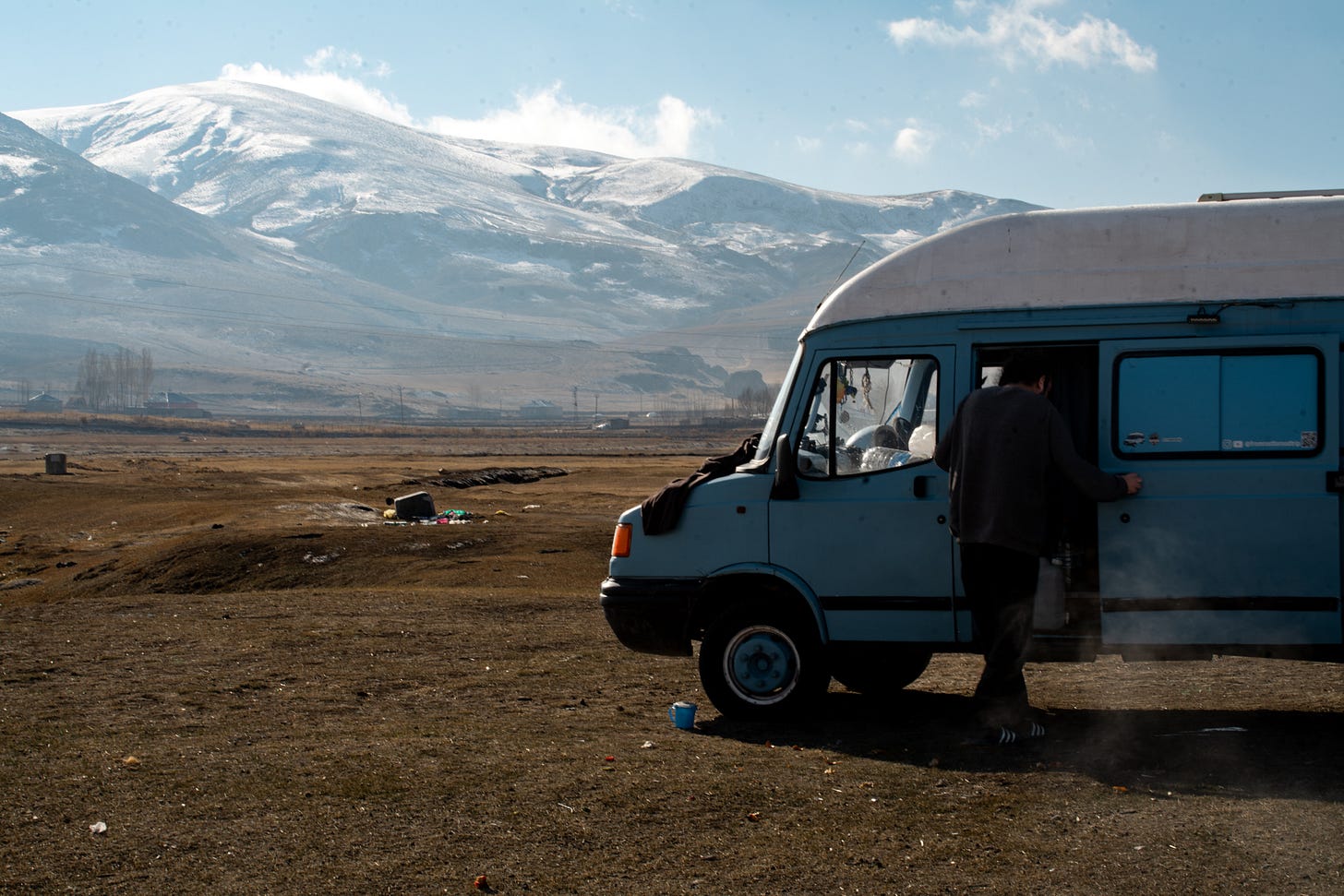
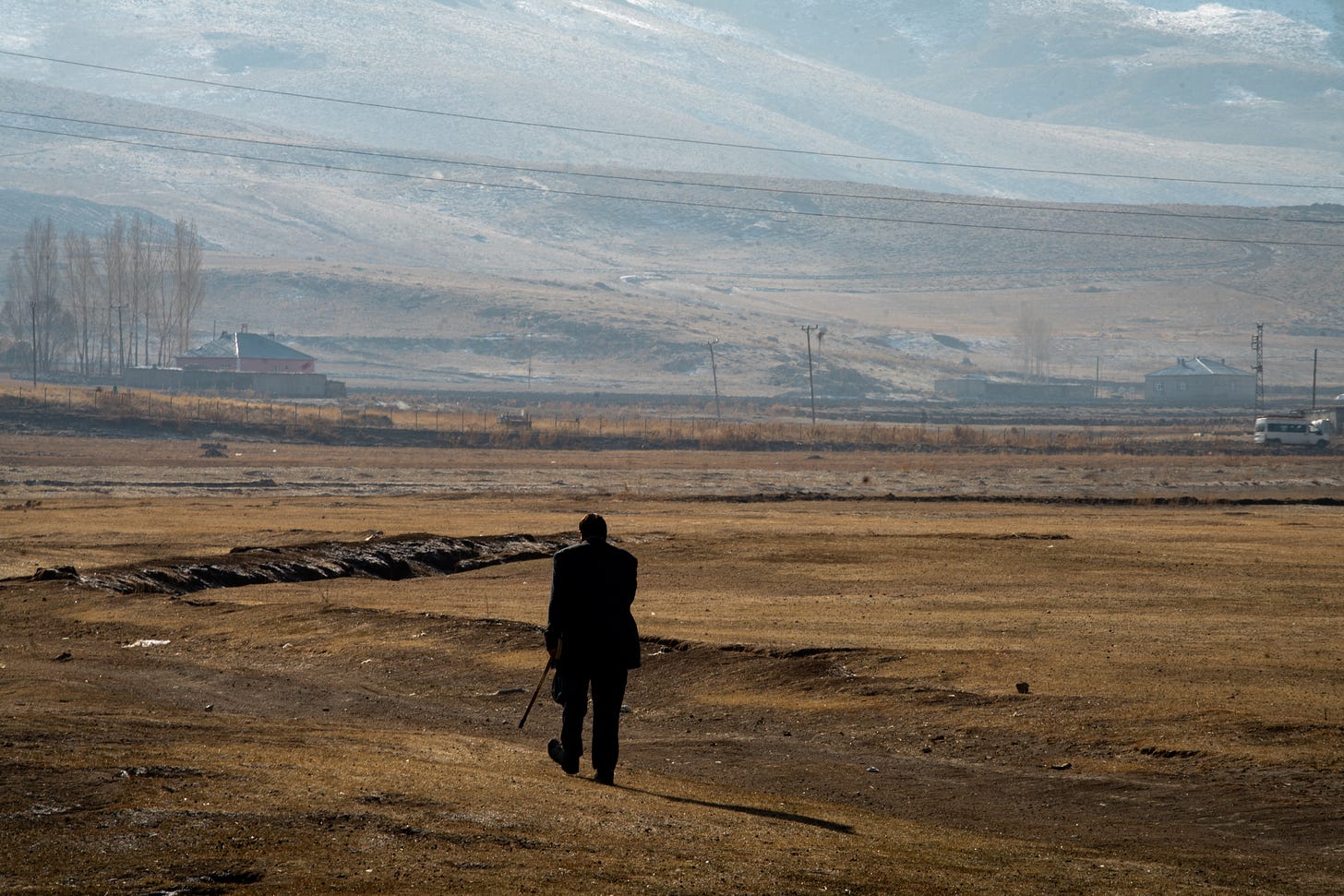
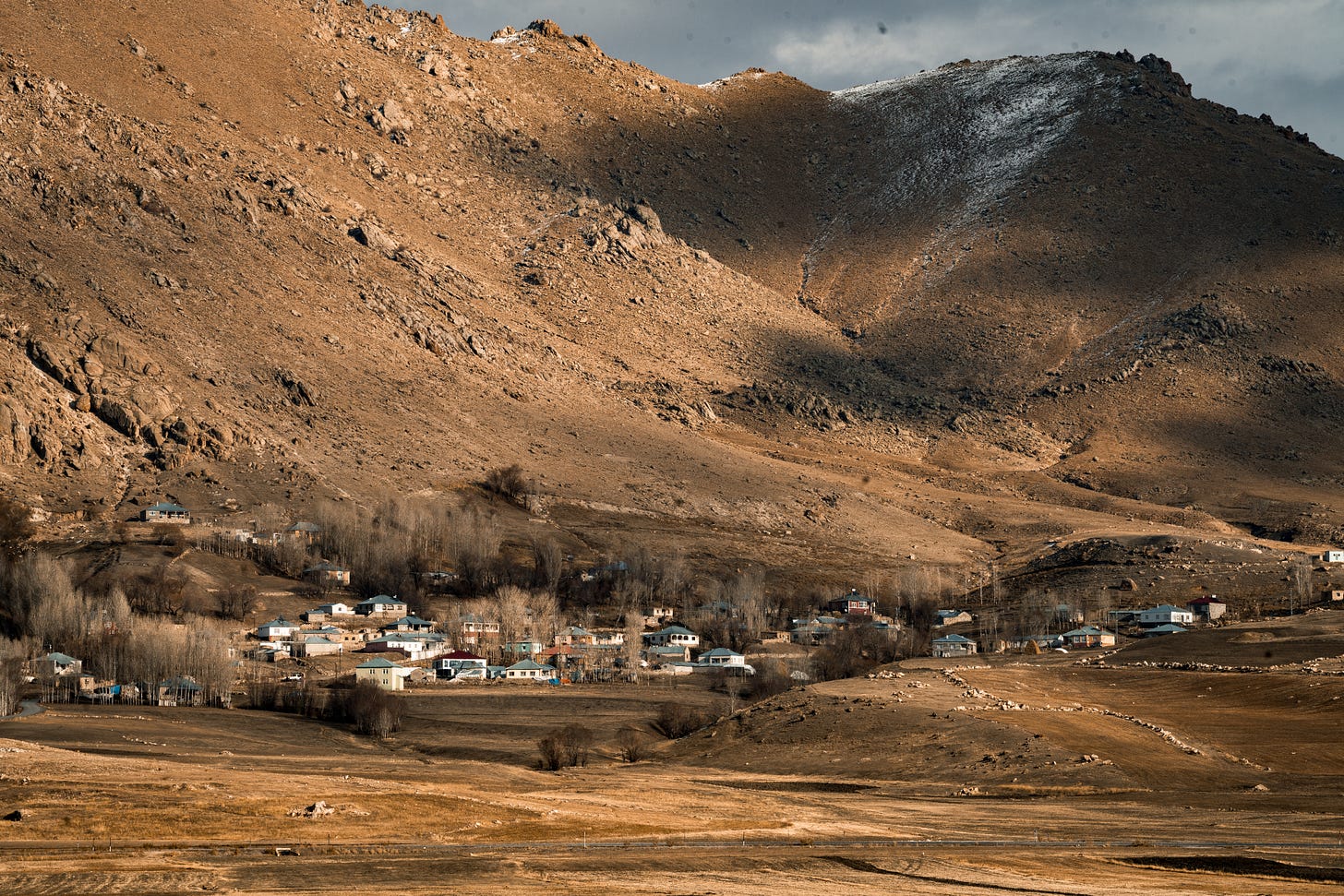
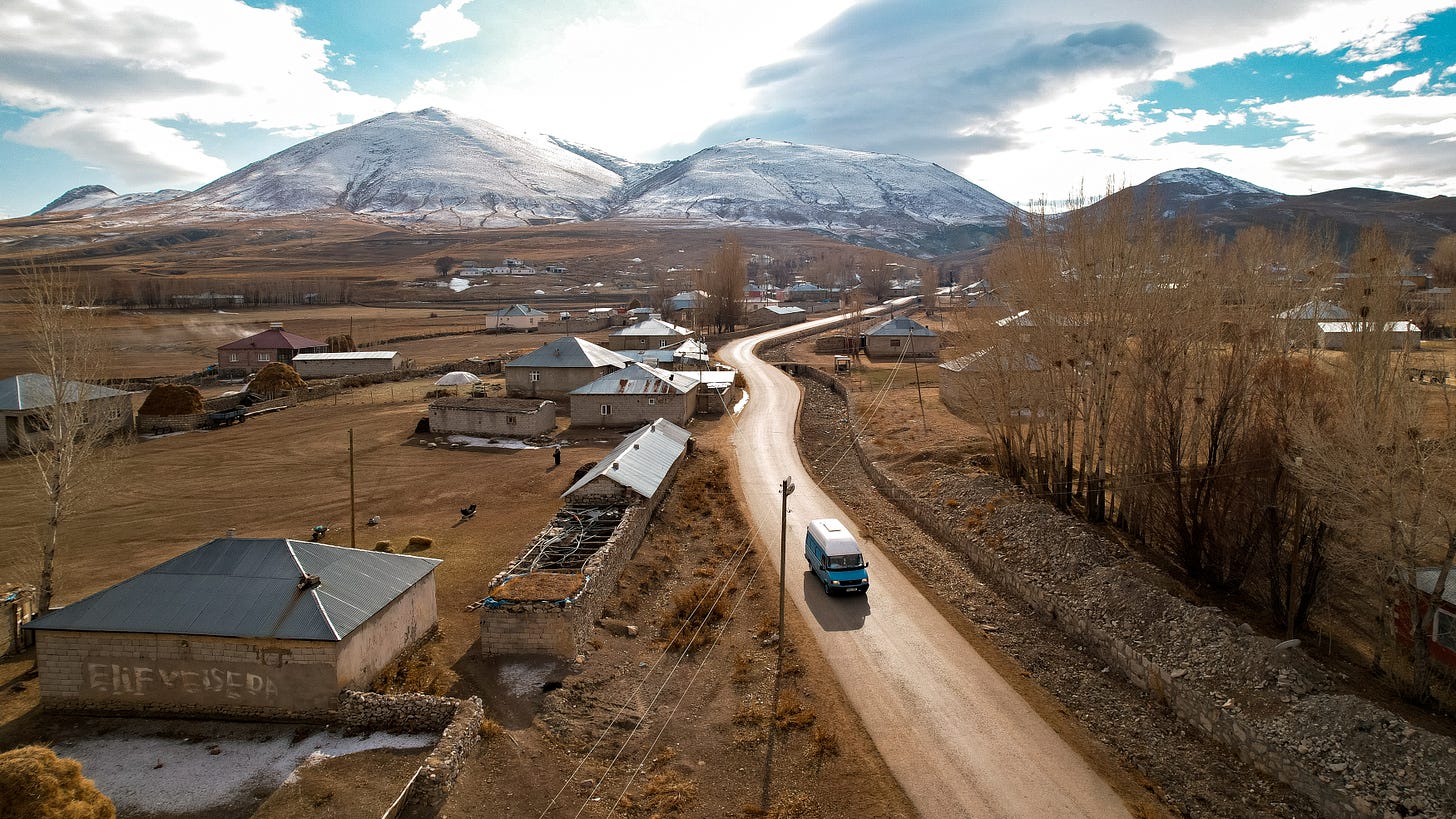
Cracking job on the sound design, it must have taken a lot of hard work, but it really adds a beautiful depth to your story. Combined with the images, it truly brings your article to life.